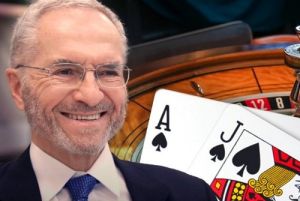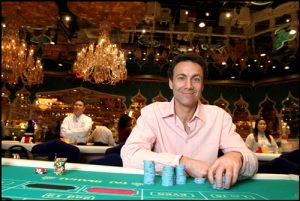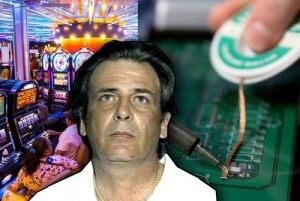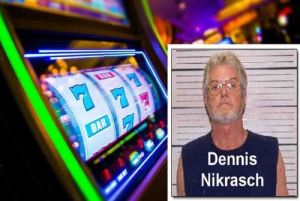
- ● Good welcome bonus
- ● Licensed with AGCO
- ● Loyalty program available
- ● Accepts payments with Interac
The history of casinos is filled with attempted cheating. Those attempts can range from brilliant plans to some quite obtuse ones. Different tricks and technologies were used as soon as they became available. Events such as these started the push for more sophisticated security systems and changes in the rules. However, these stories have something in common: eventually, all the crooks were caught.
The concept of "house edge" is fundamental to any casino business. Well-planned ventures have settled how much should be allotted for prizes and how much should stay in the house. Cheaters cause severe damage to the casino business with grand and unpredictable prizes. So, casinos had to improve their security systems to prevent and detect scams.
Security systems have evolved to such a level that it's virtually impossible to cheat on casinos. Online platforms also count on the same security systems used by banks and major financial institutions. So, if it isn't obvious yet, here's the bottom line: don't try it at home unless you want to end up in jail.
From not-so-subtle attempts to rig a machine physically, on the casino floor, to incredible mathematical skills, we've seen it all. Here are the brightest scams tried against casinos.
 Is it still a cheat if it only explores loopholes in the game using exceptional mathematical skills? Let's not dwell on this speculation. Instead, focus on the story of the math professor and hedge fund manager, Edward Thorp. Thorp devised a card-counting method to beat the house in the one-deck version of blackjack. He wrote it down in detail in his book Beat the Dealer, published in 1962.
Is it still a cheat if it only explores loopholes in the game using exceptional mathematical skills? Let's not dwell on this speculation. Instead, focus on the story of the math professor and hedge fund manager, Edward Thorp. Thorp devised a card-counting method to beat the house in the one-deck version of blackjack. He wrote it down in detail in his book Beat the Dealer, published in 1962.
The book became a tremendous success among players and a massive headache for casinos. The mathematical part was pretty advanced, although still attainable for a dedicated amateur. As people started flocking to blackjack tables and beating the house badly, casino managers decided it was time to take action.
That's when casinos started introducing more decks to the game. Also, shuffling techniques were created and improved to make counting impossible. Online versions of this game count on the Random Number Generator device, pulling random cards each turn. There are also systems to detect mechanical behaviour. If someone is trying to use any kind of software, those systems can detect it by the player's choices.
Regardless, Thorp’s method marked an era, pushed for changes in rules, and became the stuff of movies.

Richard Marcus is an American gambler who gained fame as the master of casino cheats. He employed illusionist-like skills to mess with the chips in the pot. According to Richard Marcus himself, the main trick consisted of slipping a top-dollar chip underneath a low chip.
Marcus applied this cheat in several games, like roulette, poker, and baccarat. In case of defeat, he would slip the top-dollar chip back from the pot. In case of victory, he would pull out the high chip, make a scene and strike a high win.
Marcus was incredibly skilled, but he didn't work alone. He would often count on the help of two other friends, Andy and Pat. Andy served to shield Marcus from pit bosses. Meanwhile, Pat would sit next to him to give Marcus coverage if the scheme got busted.
Marcus was arrested on December 31st, 1999, caught in the act while cheating on a casino for the last time. The sentence also resulted in a lifetime ban in all casinos in Nevada.

Tommy Glenn Carmichael made a career in hacking slot machines. He started with old slot machines back in the 60s. His skills evolved with technology, and there was always a new cheat for a new slot machine. Carmichael was arrested for the first time in 1985 for cheating, spending the next 5 years in jail.
While locked up, Carmichael devised a tool for hacking slot machines more easily. Once free, he resumed his career. In 1991, he created such an efficient tool to sell it to other scammers. The instrument was called "light wand," and "clients" would pay $10,000 per day to use it.
He was targeting boat cruise casinos when he went to jail again, in 1996. This time, he was under accusation of possessing and manufacturing a cheating device. The allegations were dropped, but Carmichael's got in trouble once again in 1998 and 1999.

Dennis Nikrasch's plan to hack slot machines took time and dedication. A locksmith by profession, Nikrasch once purchased a slot machine to practice his techniques at home. With time, Nikrasch discovered that specific "computer chips could regulate the engine." Those chips could be bought without concern.
Before jumping into real-life machines in land-based casinos, Nikrasch needed a special tool to break into them. He positioned his partners in a way to shadow the security cameras. Then, he pulled a team of distractors to shield him while he opened the machine. The process was swift, taking 1 or 2 minutes maximum. Nikrasch had the skills and the tool, but he could have chosen a better team.
One member worked for a Nevada gambling organization. That meant he was unable to collect prizes from slot machines. Reid McNeal, another group member, won on the machine rigged by Nikrasch to avoid suspicion. Yet, that's when the problems started because McNeal didn't bring any ID with him and it’s necessary to present identification to collect your winnings. After surveillance, the group got busted.
Nikesh went to jail a few times. He was first arrested in 1961, then in 1968. In the meantime, he made a fortune hacking slot machines. In 1998, he was arrested for the last time, being released in 2004. He died in 2010 of unknown causes.
No matter how elaborate those scams were, they all were discovered at some point. Millionaire winners can't pass unnoticed by casino managers. Once the prize is claimed, a team of specialists investigates what happened. Nowadays, with HD cameras, AI audited RNGs, and so on, it's basically impossible to cheat in casinos.


